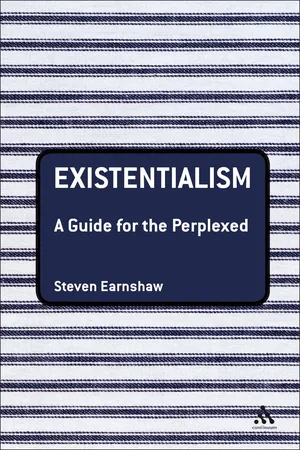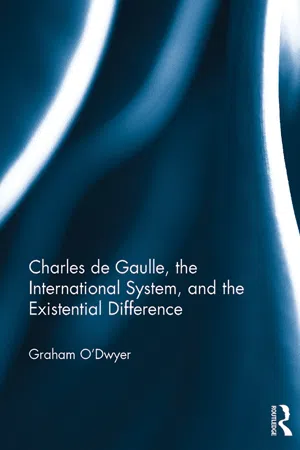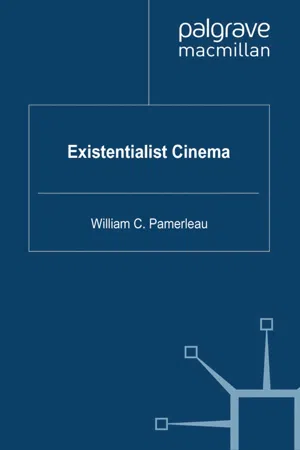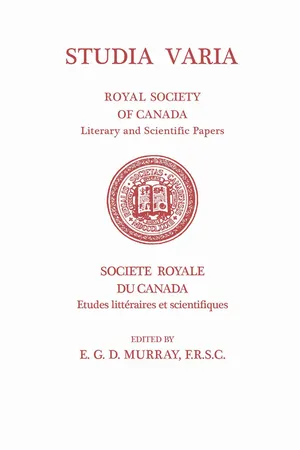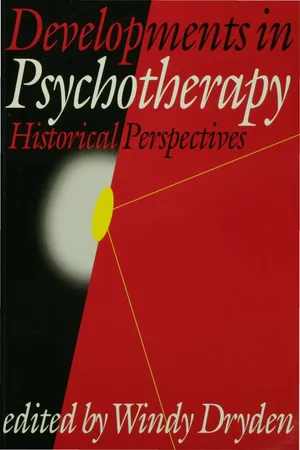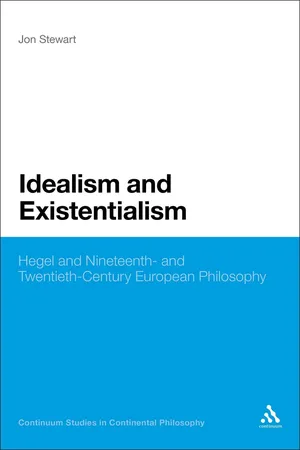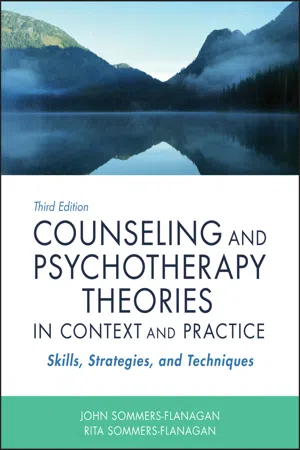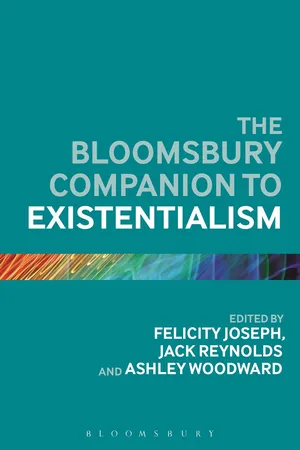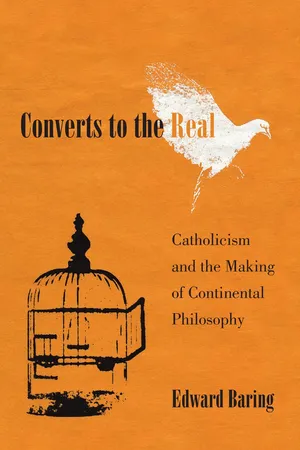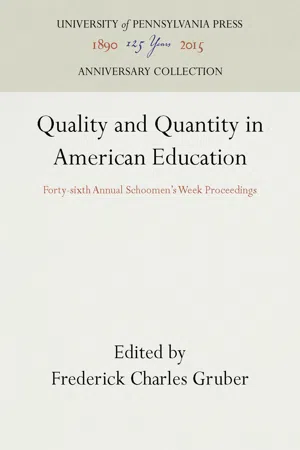History
Existentialism
Existentialism is a philosophical movement that emphasizes individual existence, freedom, and choice. It emerged in the 19th and 20th centuries, particularly in response to the challenges of modernity and the search for meaning in a seemingly indifferent universe. Existentialist thinkers such as Jean-Paul Sartre and Albert Camus explored themes of authenticity, responsibility, and the absurdity of human existence.
Written by Perlego with AI-assistance
Related key terms
1 of 5
11 Key excerpts on "Existentialism"
- eBook - PDF
- Steven Earnshaw(Author)
- 2006(Publication Date)
- Continuum(Publisher)
CHAPTER 1 INTRODUCTION: WHAT IS Existentialism? Existentialism is a philosophy that takes as its starting point the indi-vidual's existence. Everything that it has to say, and everything that it believes can be said of significance - about the world we inhabit, our feelings, thoughts, knowledge, ethics - stems from this central, founding idea. Hence what sets it apart from most other philoso-phies is that it begins with the 'individual' rather than the 'universal' and so does not aim to arrive at general truths: its insistence on per-sonal insights as the only means to real understanding entails that it makes no claims to objective knowledge. Sartre states that 'being is an individual venture' (1995: 619) and Merleau-Ponty puts it most forcefully when he declares that 'I am the absolute source' (2002: ix). Nor does Existentialism offer a particularly systematic account of its ideas. As a result of this, it is sometimes not classed as a 'philosophy' at all, but something more akin to an association of shared concerns. In addition, there is a certain 'literariness' to Existentialism, so that the prevalence of novels and other literary texts in the canon of Existential literature would seem to remove it further from the possibility of being a philosophy. Many of the 'straight' philosophical essays and books by thinkers such as Kierkegaard and Nietzsche are themselves cast in a literary vein, rather than in the disciplined rhetoric of a rigorous philosophical discourse. It may well be this focus on individual, subjective truths, its acces-sibility through literature and its reluctance to define either itself or its areas of interest in any categorical manner, which continue to make Existentialism a fascinating subject. Its concerns are funda-mental and immediate to ourselves -who am I? what am I? what life shall I live? how shall I live it? - and by 'adopting' this attitude there - Graham O'Dwyer(Author)
- 2017(Publication Date)
- Routledge(Publisher)
In the absence of a definitive sense of Existentialism we are nonetheless able to distinguish some reoccurring and common themes that Existentialism is broadly concerned with. Given the emphasis on the subjective these quite naturally centre on questions that are concerned with the notion of finding, exploring, and defining individualistic meaning in life. Stephen Priest highlights this:Existentialism is the movement in nineteenth- and twentieth-century philosophy that addresses fundamental problems of human existence…there is no set of problems addressed by all and only those thinkers labelled ‘existentialist’. However, most of them are interested in some of: what is it to exist? Does existence have a purpose? Is there an objective difference between right and wrong? Are we free? Are we responsible for our actions? What is the right sort of religious, political or sexual commitment? How should we face death?13Here we are invited to recognize that Existentialism is an approach that takes the individual as the focal point of its inquiries into human existence rather than a broader investigation of the world. Yet before moving on to explore how Sartrean logic is echoed in de Gaulle’s rationale and the interconnectivity of this with his foreign policy, I firstly stress the point of individuality in a little more depth as this is a crucially important element of my overall argument.All existentialists must, by the logic of the field, stress the importance of individualism and hence a foundational consideration of Existentialism is for the individual to pull away from mass conformity or, to borrow a Nietzschean term, ‘the herd’. For example Thomas Flynn tells us that, ‘Existentialism is known as an “individualistic” philosophy…for the existentialist, being an individual in our mass society is an achievement rather than a starting point’.14 Stephen Earnshaw goes on to echo this statement, ‘Existentialism is a philosophy that takes as its starting point the individual’s existence…what sets it apart from most other philosophies is that it begins with the “individual” rather than the “universal” and so does not aim to arrive at general truths.’15- eBook - PDF
- W. Pamerleau(Author)
- 2009(Publication Date)
- Palgrave Macmillan(Publisher)
Part I Setting the Stage: Theoretical Issues 1 Existentialism: An Overview of Important Themes and Figures 11 ‘Existentialism’ is a difficult term to define. Historically, it has been used in a wide variety of contexts and for diverse purposes. As far back as the ancient Greeks, one can find examples of texts that could today be described as existentialist, though it was not until the twenti- eth century that Existentialism emerged as a conspicuous movement. 1 While today we would certainly classify eighteenth century figures like Dostoevsky and Nietzsche as existentialists, they did not use that term to describe themselves. By the time Sartre became famous for his works, shortly after World War II, the term was widely recognized as a descrip- tion of a certain kind of literature, art, and philosophy, but by then it was also misunderstood by a large portion of society outside of aca- demia. In his popular essay ‘The Humanism of Existentialism’, Sartre jokes that a woman who let loose a vulgarity exclaimed, ‘I guess I’m becoming an existentialist’, which for Sartre illustrates how vague and abused that term had become. 2 It doesn’t help us understand the move- ment any better to know that its major figures, like Sartre, often denied being existentialists (though for reasons which make perfect sense, if you are an existentialist). While even academics would have a difficult time agreeing on a specific definition of Existentialism, there are some widely accepted characteristics that will serve as a starting point. First, most existen- tialists are reacting against a trend in philosophy prevalent at least since the Enlightenment (and really, since antiquity) which asserts that human beings are capable of understanding the truth about them- selves and their world, if only they are willing to dedicate enough time and reason to the enterprise. - eBook - PDF
Studia Varia
(Royal Society of Canada, Literary and Scientific Papers)
- E.G.D. Murray(Author)
- 2019(Publication Date)
- University of Toronto Press(Publisher)
The force of existen tial is adjectival rather than substantial. It denotes a way of thinking and not a frame of reference. A philosophy which lays such central emphasis on the individual man in his existence almost inevitably breeds a high degree of singularity in its exponents. This has led some of them to disavow the very word Existentialism. Gabriel Marcel writes, The term Existentialism brought with it the worst of misunderstandings, and I now consider I have repudiated it once and for al l. 7 Karl Jaspers has made a sim ilar repudiation, now preferring the more general if less distinctive term a philosophy of reason. 8 The existential movement is the latest witness to the fact that most new departures in the history of philoso phy have arisen from a fresh discovery in method. As we have already noted, the significant feature is a way of thinking. The late Professor Karl Heim describes it thus: A proposition or a truth is said to be existential when I cannot appre hend it or assent to it from the stand-poin t of a mere spectator, but only on the ground of my total existence. 9 Existential thinking is concrete rather than abstract: it is conducted from within a situation rather than from a position of detached neutrality. It is in marked contrast with the attitude of dispassionate rationality whereby personal involvement in the conclusion is eliminated. It is distinguished from the methods of scientific investigation, the virtues of which are regarded as submission to empirical facts and a willingness to test al l theory by experimental evidence. Similarly, the ideal philosopher in his search for ultimate wis dom has been expected to sustain his argument from point to point by the discipline of pure reason, accepting conclusions on grounds of rational conviction rather than personal prejudice. - eBook - PDF
- J. Baggini(Author)
- 2016(Publication Date)
- Palgrave Macmillan(Publisher)
Existentialism and Humanism 117 !i" The attack on existential ism Existentialism and Humanism begins with an outline of its purpose. It is clear that one of the main aims of the book is to defend Existentialism against its critics. The first criticism he cites is that Existentialism leads to quietism, the belief that one should do nothing because nothing one can do can change anything. On this view, Existentialism is a philosophy of despair which can provide no hope for life. As Sartre's comments make clear, this criticism was particularly made by the communists. They believed that human action was necessary to end the sub- jugation of the working classes by the bourgeoisie. Inaction, which they thought followed from Existentialism, is therefore reactionary, a means only of sustaining the current, unjust status quo. The second accusation is that Existentialism debases humanity. This is because Existentialism emphasises the individual. Your choice and your free will are of central importance. You can only see the world from your point of view and you cannot rely on other people to give your life value or meaning. This, it was claimed, led to solipsism - the view that each person is essentially alone, and that the world only exists from their viewpoint. In Descartes's famous phrase, a person is essentially a 'cogito' - an 'I think' - and is thus in essence a private mind, separated from others by her subjectivity. A third accusation is that Existentialism leads to a lack of values, where every- thing is permitted and no-one can be condemned. After all, if values have to be chosen by each individual, how can they really be moral values at all? Isn't it the point of moral values that they apply to everyone, not that they are things we just choose for ourselves? Whether or not you judge Existentialism and Humanism to be a successful work of philosophy depends to a large part on whether you think it successfully answers these criticisms. - eBook - PDF
Developments in Psychotherapy
Historical Perspectives
- Windy Dryden(Author)
- 1996(Publication Date)
- SAGE Publications Ltd(Publisher)
It is equally unlikely that contemporary humanistic therapists would recognize a fellow traveller in Montaigne, with his focus on death. At the heart of existential psychotherapy, though, lies an activity supremely philosophical. Existential ism focuses on human existence -a word derived from the Latin existere meaning 'to stand out' -and phenomenology, which provides Existentialism with its way of investigating the world, is an approach which is open to the 'phenomena ', to what 'shows ' itself, independent of our presuppositions, explanations and theories. As Cohn has pointed out, when Freud, in his Introductory Lectures , states that 'The phenome na perceived must yield in importance to the trends which are only hypothetical', his aim is exactly the opposite to that of phenomenology. It is a characteristic of human existence that we can 'stand out' of ourselves sufficiently to be able to reflect on that we are, what we are, and what we do in a way that the 'mere ' existence of animals, plants and stones does not permit. Clearly it is this focus which we discover when we turn to consider the ancient philosophies. As Rollo May, an American existential theorist (May et aI. , 1958) points out, the existentialist way of understanding human beings did not begin with the existential psychotherapists. He traces it back through Pascal and St Augustine to the Socratic Dialogues. Psychotherapy trainees in North America are given very little exposure to philosophy, since their profession is generally considered to be 'scientific '. It is thus comparatively easy for them to discount their philosophical heritage. They do so at a price, however, for to dismiss philosophy in favour of science may easily lead practitioners, as it has led Irvin Yalom, a well-known psychiatrist, to describe existential psychotherapy as 32 Developments in Psychotherapy rather much a homeless waif. - eBook - PDF
Idealism and Existentialism
Hegel and Nineteenth- and Twentieth-Century European Philosophy
- Jon Stewart(Author)
- 2010(Publication Date)
- Continuum(Publisher)
212 Idealism and Existentialism it, and anything might emerge from anything else . . . History would never move in any direction, nor would it be possible to say that even over a short period of time events were conspiring to produce any definite outcome. 63 This would rule out any talk of historical movements, 64 as Merleau-Ponty illustrates with the persuasive example of the Napoleonic dictatorship in 1799. According to Sartre’s assumed view, Napoleon’s rise to power would be simply a question of the free choice of one man. For Merleau-Ponty, by contrast, although Napoleon’s will and ambition doubtless played a role, there was also a much larger historical context that made these events pos-sible. Instead of it being purely a question of individual personalities, it was the general historical moment which in a sense presented itself: “What is known as the significance of events is not an idea which produces them, or the fortuitous result of their occurring together. It is the concrete proj-ect of a future which is elaborated within social coexistence and in the One before any personal decision is made.” 65 For Merleau-Ponty there is a social-historical context of a universal “one” or anonymous collectivity which is prior to any cognitive volition or desire. There are thus two fac-tors involved: individual free will, and a fixed historical context. These two stand in a constant dialectical interaction: “There is an exchange between generalized and individual existence, each receiving and giving something.” 66 There is thus a reciprocal movement between the faceless forces of history, and the will and ambition of individuals. Sartre is not blind to this kind of argument, and in his account of free-dom he himself uses a great number of historical examples. - eBook - PDF
Counseling and Psychotherapy Theories in Context and Practice
Skills, Strategies, and Techniques
- John Sommers-Flanagan, Rita Sommers-Flanagan(Authors)
- 2018(Publication Date)
- Wiley(Publisher)
CHAPTER 4 Existential Theory and Therapy LEARNER OBJECTIVES ■ Define existential philosophy and existential counseling and psychotherapy ■ Identify key figures and historical trends in the development, evolution, and application of existential theory and therapy ■ Describe core principles of existential theory ■ Describe and apply existential therapy principles, strategies, and techniques ■ Analyze cases that employ existential therapy techniques ■ Evaluate the empirical, cultural, gender, and spiritual validity of existential therapy ■ Summarize core content and define key terms associated with existential theory and therapy This chapter is about life’s big quandaries. Together, we explore meaning, death, responsibility, and the ambigu-ity and suspense inherent in human existence. Although many contemporary therapy approaches are oriented toward the great American quick fix, existentialists believe that reducing psychotherapy into a technical pro-cedure that focuses on symptom reduction is unhealthy and wrong (van Deurzen & Adams, 2016). INTRODUCTION Psychoanalysis (Chapter 2), evolved primarily from medical practice with disturbed patients. Behavior ther-apy (Chapter 7) arose from experimental psychologi-cal research. Person-centered therapy (Chapter 5) and individual psychology (Chapter 3) have roots in clinical practice, humanistic-existential philosophy, and, to some degree, psychotherapy research. In contrast, existential therapy is derived from existential philosophy. Existential philosophy focuses on the inevitable conditions humans face during life, such as death, responsibility, freedom, and the pursuit of meaning (van Deurzen, 2014a; Yalom, 2008). What Is Existential Therapy? Existential psychotherapy (or counseling ) is grounded in existential philosophy; it focuses on self-awareness, facing the unavoidable conditions of human exist-ence, and authentic living. - eBook - PDF
- Felicity Joseph, Jack Reynolds, Ashley Woodward, Felicity Joseph, Jack Reynolds, Ashley Woodward(Authors)
- 2014(Publication Date)
- Bloomsbury Academic(Publisher)
However, one further prefatory remark is in order. It may seem as if I am too simplistically subscribing to the view that there actually is such a thing as ‘exist-entialism’ and failing, from the outset, to make the necessary distinctions between, let us say, Heidegger’s philosophy of Existenz and French existential-ism, or between ‘Existentialism’ as expressive of an intellectual mood and exist-entialism as a distinct body of philosophical views (which possibly never existed and in relation to which we might paraphrase Nietzsche’s remark about there only ever having been one Christian, who died on the cross: that there was only ever one existentialist, and he converted to Marxism). All these distinc-tions – and more – are, of course, important, but this is not the place to argue for any one particular definition of Existentialism. In what follows I shall be assum-ing rather than arguing for a certain view of Existentialism, but I hope that in doing so I shall not be perpetrating any kind of subterfuge on the reader and that my assumptions will be more or less transparent. It may, however, be use-ful to stress now that I am taking the term as applying less to a particular set of philosophical positions and more to a certain current in the history of ideas that first acquires a clear profile in the writings of Søren Kierkegaard and that culminates in the postwar atmosphere of Parisian Existentialism. Existentialism’s Religious Inheritance The back-story of Existentialism involves many different threads and invites rather loose speculation as to what is or isn’t ‘existential’. Rather than attempt-ing a broad overview of all the possible sources and aetiologies, therefore, and given the role of Martin Heidegger in formalizing what would become known The Bloomsbury Companion to Existentialism 120 as the philosophy of existence, it seems appropriate to begin by looking, briefly, at the role of religious sources in shaping Heidegger’s early master-work Being and Time . - eBook - PDF
Converts to the Real
Catholicism and the Making of Continental Philosophy
- Edward Baring(Author)
- 2019(Publication Date)
- Harvard University Press(Publisher)
225 In the period after World War II these thinkers would come to dominate our understanding of existen-tialism, sidelining the predominantly Christian thinkers I have dis-cussed here. But the two stories cannot be neatly separated, in large part because the dialogue between neo-scholastics and their Christian exis-tentialist critics was a critical context for the initial reception of Husserl, Heidegger, and Scheler. As we shall see in Chapters 6–8, the phenome-nological conversions that vexed neo-scholastics made phenomenology attractive to their Christian existentialist critics, while providing oppor-tunities for secular thinkers to challenge the latter’s thought. Circling in ever widening gyres, phenomenology transformed from a means for ar-ticulating religious diference into a justification for atheism. 183 6 The Cartesian Thomist W riting in the relative obscurity of the Louvain Jesuit College, Joseph Mar é chal spent the early 1920s working on his magnum opus, The Starting Point of Metaphysics (1922–1926). Over five volumes, he meticu-lously reconstructed the history of philosophy from the Greeks to the Enlightenment to support the claim that Aquinas’s metaphysics was compatible with post-Kantian thought. He acknowledged the concern that if one accepted the starting point of modern philosophy, one would “confine knowledge in a circle of subjective modifications.” But for Mar é chal, the rejection of modern thought could only lead to the “ivory tower of a narrow dogmatism,” leaving Catholic philosophy isolated and defensive. 1 Moreover, he argued, if one confronted Kant directly, it was possible to demonstrate not only that the critical problem with which he began could be solved by Thomist-Aristotelian metaphysics, but also that Thomism was the only solution. - eBook - PDF
Quality and Quantity in American Education
Forty-sixth Annual Schoomen's Week Proceedings
- Frederick Charles Gruber(Author)
- 2016(Publication Date)
I don't know as it matters too much whether these people are or are not Existentialists. What quite obviously does matter, however, is that we give sober and thoughtful attention to the authentic message of Existentialism and what this message has to say about the manage-ment of the educative process. To achieve the necessary sobriety, I suggest we turn our eyes from these spectacular, semi-licit images the public mind has developed concerning this outlook, and address ourselves directly to the central position of Existentialist thinkers. II What does Existentialism say? It may come as a surprise to you that it is not so complicated and esoteric as many people seem to try to make it. The focal problem resides within every one of us and it is relatively simple to describe. Every human being—every one in this 30 QUALITY AND QUANTITY IN AMERICAN EDUCATION room—lives out his every day with a monstrous paradox he cannot resolve. In the first place, you must take the position that you are the most important being in the world. There is no other possible platform from which to view life. You are the center of everything, the final measuring rod for all that you experience. And you must always place a higher valuation on your continuing existence than that of all you survey. If there is a direct showdown between you and a hurricane, you and a wild beast, you and an arrant gunman, your vote must always be cast for yourself. I know, of course, that in examples of extreme heroism, we learn of individuals sacrificing their lives for others; but this is just my point. It is because such acts of self-destruc-tion are so unusual, so absolutely contrary to everything we feel within ourselves, that we call them heroic. Certainly the most awful, traumatic personal catastrophe we can imagine is to be placed in a circumstance where we must choose our own obliteration.
Index pages curate the most relevant extracts from our library of academic textbooks. They’ve been created using an in-house natural language model (NLM), each adding context and meaning to key research topics.
